The best water filtration systems depend on several factors, including the quality of your local water supply, the types of contaminants you want to remove, and your budget. Here are a few types of water filtration systems that are popular and effective:
- Reverse osmosis systems: Reverse osmosis (RO) is a highly effective water filtration process that uses a semi-permeable membrane to remove a wide range of impurities from water. RO systems are ideal for removing contaminants such as dissolved salts, heavy metals, fluoride, nitrates, and other harmful substances found in water. RO systems are typically installed under the sink. They are more expensive than other filtration systems. Still, their high effectiveness makes them a popular choice for many homeowners.
- Carbon filters: Carbon filters are affordable and practical for removing common contaminants such as chlorine, sediment, and volatile organic compounds (VOCs) from water. Carbon filters absorb impurities as the water passes through the filter material. They can be installed under the sink or attached to a water pitcher or dispenser, making them an ideal choice for improving the taste and odor of drinking water.
- UV filters: Ultraviolet (UV) filters use ultraviolet light to kill bacteria and viruses in water. UV filters are effective at killing microorganisms, but they do not remove other contaminants, such as heavy metals or dissolved solids. They are often used with different filtration systems, such as carbon filters or RO systems. They are typically installed at the point of use.
- Water distillers: Water distillers work by boiling water, collecting the steam, and condensing it into purified water. This process removes impurities such as dissolved solids, heavy metals, and other contaminants. Water distillers can effectively remove contaminants but can be slow and use a lot of energy. They are typically used for small-scale applications at home or in a laboratory.
- Water softeners: Water softeners use ion exchange technology to remove minerals that cause hard water, such as calcium and magnesium. They can be either salt-based or salt-free, and are designed to prevent scaling and extend the lifespan of appliances that use water. Salt-based systems use a brine solution to regenerate the resin beads. In contrast, salt-free systems use a template-assisted crystallization process to prevent minerals from adhering to surfaces.
When selecting a water filtration system, you must consider your specific needs and the quality of your local water supply. Consulting with a water treatment specialist can help you select the best system for your home. Ultimately, the best water filtration system for you will depend on your budget, the contaminants you want to remove, and your specific requirements.

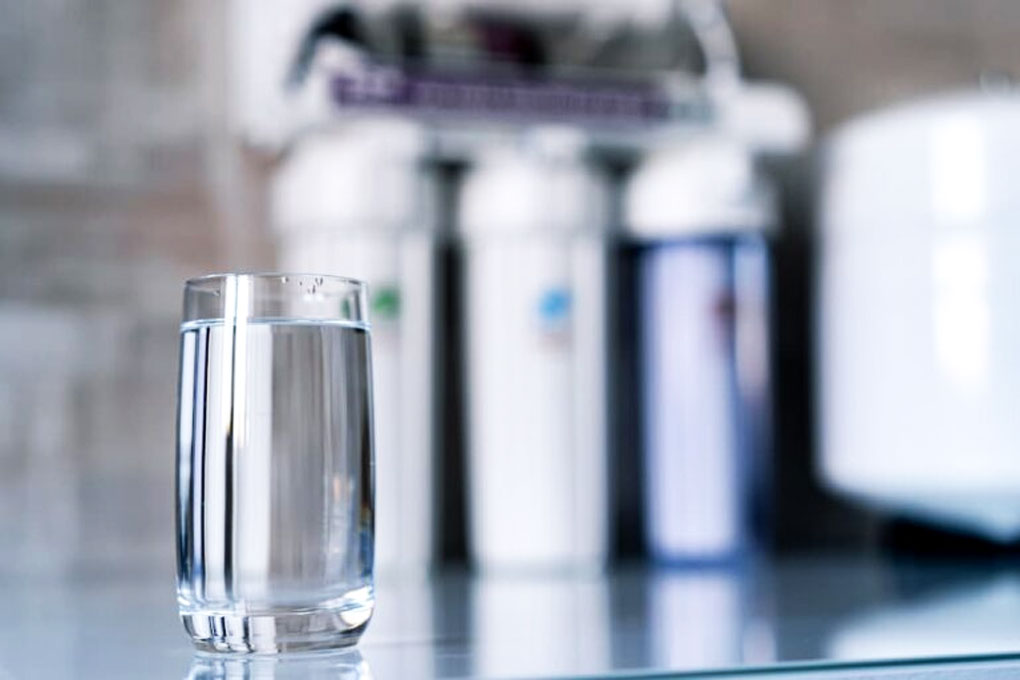
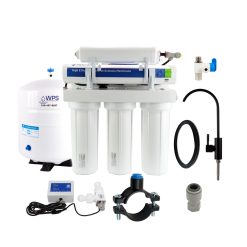
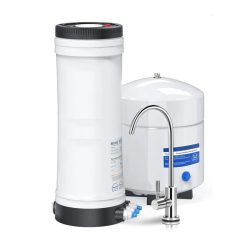
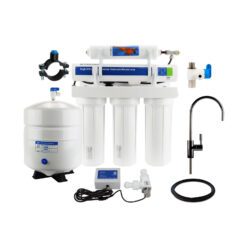
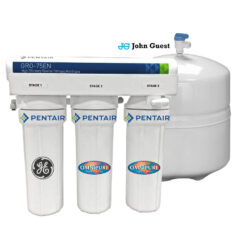
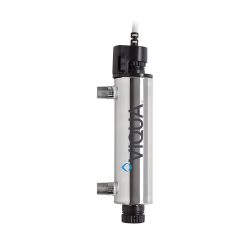
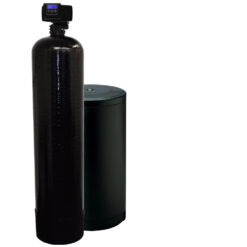
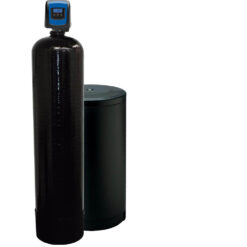
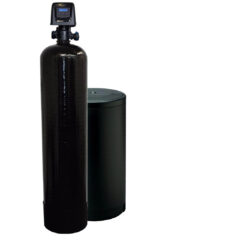
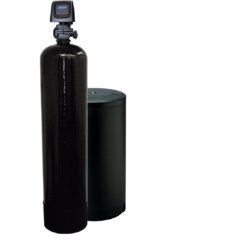
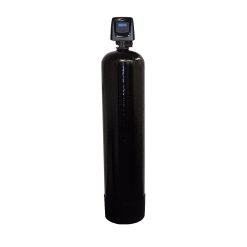
Home & Office Water Coolers
Vertex PWC-850 – Countertop Ice-Making Dispenser
Commercial Reverse Osmosis
GRO 6-Stage-UV Reverse Osmosis Installation Kit with Pentair 50 GPD Membrane 1:1 and UV Filter
Alkaline Filters (Increase PH)
In Housing Alkamag Ionized Alkaline Water Filter “Aptera”
Parts
GoldLine 5 Stage Replacement Reverse Osmosis Filters
$99.10Original price was: $99.10.$86.24Current price is: $86.24.Filtration Systems By Contaminants
3 Stage Water softener with Fleck 5800 XTR2 Upflow/Downflow Control Valve